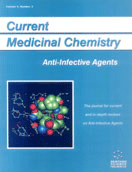Abstract
The substantial increase in the incidence of fungal infections during the past two decades has been suggested as the major cause of morbidity and mortality among immunocompromised patients. Aggressive immunosuppression, HIV-1 infection, cancer, and organ transplantation have opened the door to pathogenic fungal organisms. Disseminated candidiasis and pulmonary aspergillosis caused by emerging opportunistic fungi are the most common of the serious mycoses. Reliability of radioisotope-based measurements and specificity of immune reactions, radioimmune tests, like radioimmunoassay (RIA) and indirect radioimmunometric assay (IRMA) make the applications of radiotechniques among the most promising methods in the antifungal drug research and diagnostic tools. The following applications are discussed in this article: mechanisms of fungal physiology and biochemistry, transporter systems, evaluation of mycoses, radiolabeled metabolites, antifungal drug efficacy and discovery, and antifungal drug metabolism and pharmacokinetics in animal models, therapeutic drug monitoring and in-vitro diagnosis.
Keywords: antifungal, radiolabeled, fungal biochemistry, mycoses, fungal metabolites, drug discovery, diagnosis, and antifungal therapy
 4
4

